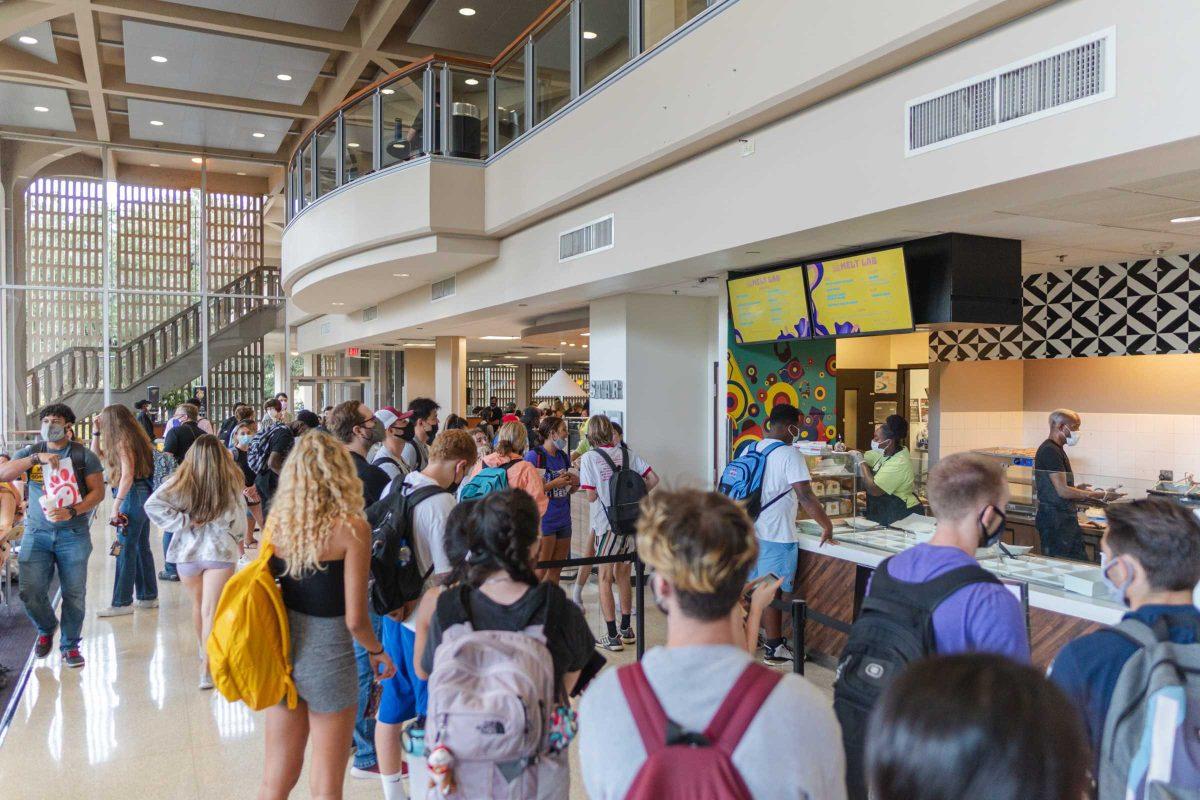Editor’s note: This column is written in response to “Opinion: College students are to blame for their own poor money management,” published on Oct. 8.
If there’s a group with a problem prioritizing its money, it’s the American government, not college students.
Americans are burdened with $1.59 trillion in student loan debt. The cost of college has increased 25% in the last decade alone, and rent continues to skyrocket across the United States. It’s becoming increasingly difficult to make ends meet in this country, especially for someone trying to obtain an education.
Seventy percent of students worry about their finances, according to a 2015 study. Financial struggle is the number one reason students drop out, which contributes to the nine-point graduation gap between low-income students and middle or upper-income students. A 2019 national survey found that 39% of college students had experienced food insecurity in the past month.
According to a 2018 Georgetown University report, 70% of full-time students work, typically 15 to 35 hours a week. Low-income students are forced to work even longer hours, further widening gaps in opportunity.
My fellow columnist Samuel Camacho wrote this in his recent piece: “I listen to my fellow college students weeping that they’re ‘poor,’ asking their parents for more money and demanding their student loans be forgiven. To most of you, I only have one thing to say: you’re doing this to yourself.”
Let’s break that down.
First, many college students do, in fact, face serious economic hardship. Millions of college students go hungry because they do not have enough money to pay for food. A 2020 survey found 41% of college students at four-year institutions had experienced housing insecurity and 15% had experienced homelessness. Many students are actively experiencing the realities of poverty, not “weeping that they’re ‘poor.’”
Second, college labor statistics suggest most college students earn their own money. Is there some population of students that swipe their parents’ credit cards without a care? Sure. But to assume most students have the privilege to ask for money from their parents whenever they want is simply a false generalization.
Third, yes, despite endless conservative talking points, student loan cancelation is actually a broadly popular policy. Two-thirds of respondents in a 2021 Grinnell poll supported student loan forgiveness in some form.
The massive loan burden many bear for their education is not only a detriment to individuals but also to society as a whole. Student debt makes it harder for young people to buy homes, get married and have children—and never mind putting anything away for the future.
Camacho also points to busy crowds at the Student Union as evidence to his claim of widespread wasteful spending habits. But again, this is not proof college students spend money irresponsibly—35,000 people attend LSU, and every one them needs to eat. Not to mention, many students have meal plans that allow them to spend Paw Points at the Union.
Attributing the financial struggle of college students to individual choices ignores the crushing structural issues that are actually to blame.
It is a failure of American policy that students must shoulder so much debt for an education. Higher education should not be a commodity vastly more accessible to the wealthy, especially in the richest country in human history.
The federal government spends trillions of dollars on war and leaves scraps for social programming that would improve the lives of millions.
Blaming the individual prevents us from solving the broader issues at hand—and it lets America’s worst money-managers, our legislators, off the hook.
Claire Sullivan is a 19-year-old coastal environmental science sophomore from Southbury, CT.







